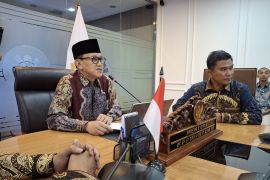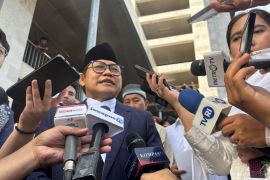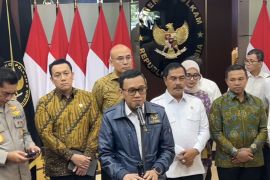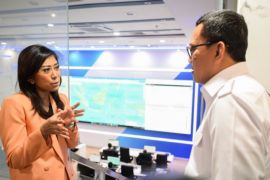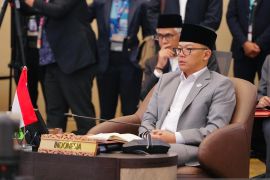Speaking before hundreds of female legislative candidates from Nasdem Party here on Saturday, Hidayah, who is also executive director of Migrant Care, said 213 of these Indonesians were currently under judicial review in Malaysia.
"Seventy of them have been sentenced to death. In Saudi Arabia nine migrant workers have also been sentenced to death, while 33 others are still under judicial reviews," she said.
Among those Indonesians who have been executed are Basri Masse in Malaysia, Karno Marzuki, also in Malaysia, on September 14, 1991, Yanti Iriyanti in Saudi Arabia in February 2008, Darman Agustiri in Egypt in 2010 and Ruyati in Saudi Arabia on June 18, 2011.
"What has happened to Indonesian migrant workers is connected with various mistakes the workers made, such as possessing illegal documents," she said.
Hidayah noted that 101,067 illegal migrant workers have applied for legalization, but only 17, 306 have been able to obtain work documents.
She added that there was also a case of misleading over protection, which has been understood partially, as shown by the late handling of cases, such as of those remaining in Saudi Arabia with expired work permits, which was assisted only after the public provided a Rp1000 campaign and in response to Ruyatis case, which gained momentum only after she was executed.
"To minimize or even stop the cases from happening, governments in regions that send migrant workers must actively participate," Hidayah said.
Several points that regional governments must pay attention to include providing cheap, easy and quality information, as well as service and assistance for their workers, she said.
"Besides educational means and facilities for migrant workers, the central government and Indonesian representatives abroad must also make efforts to obtain job orders from employment providers abroad and executive and legislative members must finish revisions of the Indonesian Migrant Workers Bill," she said.
Meanwhile, former parliament member Maria Ulfah, who previously led the Indonesian Children Protection Commission, said consolidation is needed to advocate for the issuance of gender-equal bylaws and regional budgets.
She said the capacity of legislative members must also be improved so they have clear general perspectives, while networks within and outside the legislative assembly must be strengthened to deal with issues of women and children.
reporting by edy m yakub
(H-YH/INE/H-YH)
(EDITED BY INE)
Editor: Suryanto
Copyright © ANTARA 2013

